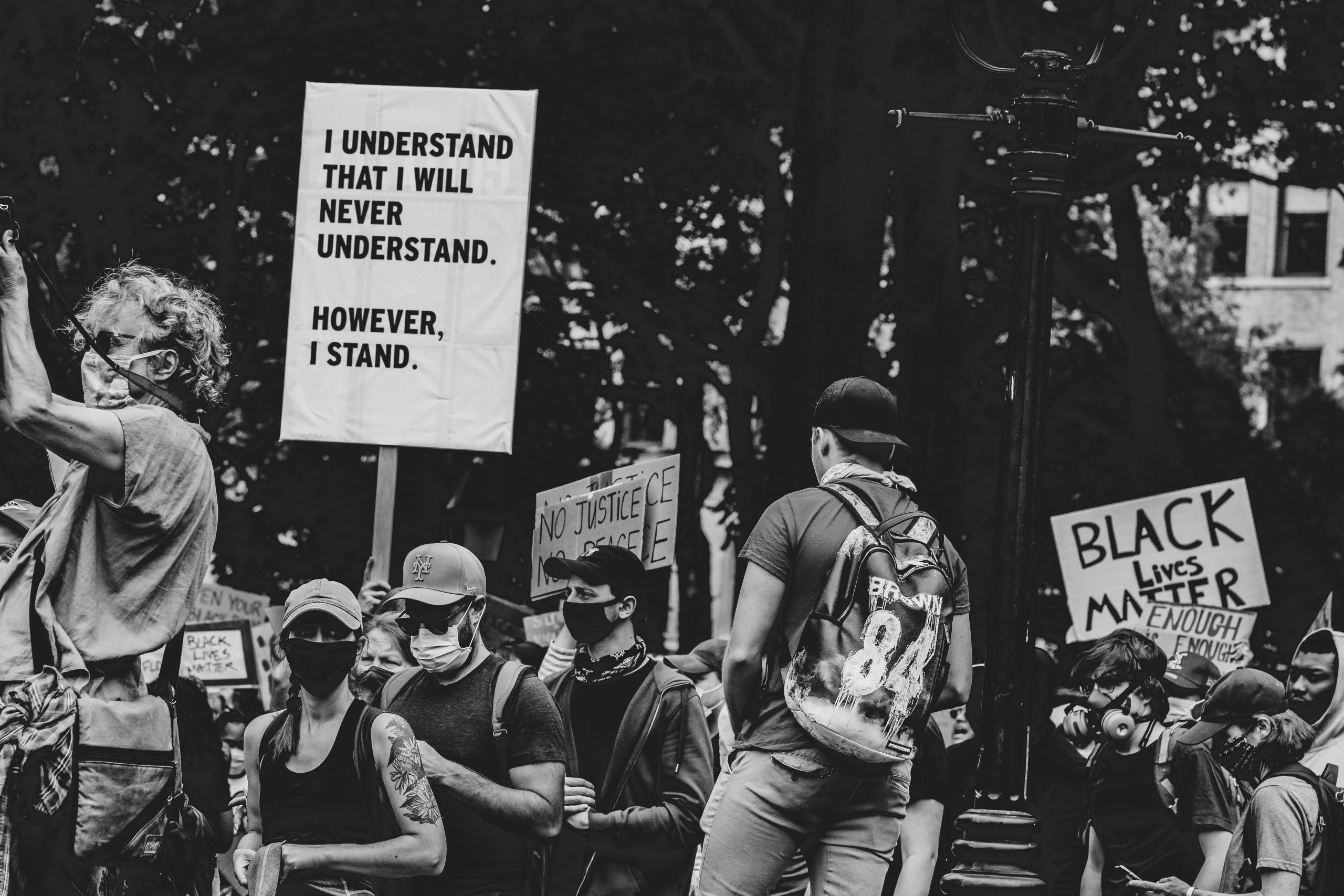
December 20th is International Human Solidarity Day. In reflecting on 2020, finding our place of solidarity and advocating from there is crucial.
Solidarity asks us to consider our place in the collective. While it’s easy to feel like an individual in COVID times, on social media, and broadly in our economic system, we are deeply interdependent. Our needs are met by others. This is easy to see when thinking about the last meal you ate and how many people were involved in bringing it to your table.
When it comes to social justice, solidarity requires us to understand who we are as individuals within the collective. It asks us to see our wellbeing as deeply intertwined with the wellbeing of others. While charity positions us as giving something up for someone else, solidarity shows how we all benefit from justice for those who are most marginalized by oppressive systems.
Whole-hearted solidarity sustains our movements for justice. This is evident in the popular uprisings following the police murder of George Floyd. We saw how “all mothers were summoned when he called out for his mama.” The statement evokes deep empathy and reminds us that we’re all called in our own way to dismantle the anti-Black racism that promotes violence against Black people.
When it comes to international solidarity, we know that just as human rights norms can be globalized, so too can oppressive structures like white supremacy. International Human Solidarity Day is a day to remind governments to respect their commitments to international agreements, including the International Convention on the Elimination of All Forms of Racial Discrimination which the U.S. ratified in 1994. We see these agreements as important tools in the struggle against structural discrimination.
Our actions in solidarity speak to the ways our team and supporters see ourselves embedded in this struggle. For example, we recently filed an Amicus Brief in the Black Lives Matter D.C. v. Trump case to support the rights of peaceful protestors advocating for racial justice. Ending structural discrimination demands our solidarity in action. Not just for some of us but for all of us.


